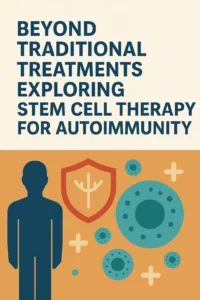When we think about wellness, physical health often comes to mind first. But did you know that your happiness and health are closely linked? Studies show that a positive mindset doesn’t just improve your mood but can have a profound impact on your overall physical health. From reducing stress to alleviating pain, happiness truly has the power to enhance your well-being in ways that might surprise you.
In this article, we’ll explore the science behind the connection between happiness and health and offer five actionable strategies you can use to boost your mood, reduce stress, and improve your quality of life.
1. The Science of Happiness: How a Positive Mindset Boosts Health
A growing body of research shows that cultivating a positive mindset can lead to better mental health and physical health outcomes. People who maintain an optimistic outlook are less likely to suffer from chronic illnesses and more likely to recover quickly when they do. But how does happiness have such a profound impact on our bodies?
When you’re happy, your brain releases endorphins and dopamine – often referred to as “feel-good” chemicals. These natural mood-boosters not only improve your emotional state but also lower your body’s production of cortisol, the stress hormone. Lower levels of cortisol mean less inflammation, which can help prevent a wide range of health issues, from heart disease to autoimmune disorders.
In other words, a positive mindset isn’t just good for your mental well-being – it’s a key component of physical health too.
2. 5 Ways to Boost Your Mood and Reduce Stress
If happiness is the gateway to better health, how can you cultivate it? Here are five science-backed ways to naturally boost your mood and reduce stress:
- Practice Gratitude: Gratitude has been shown to increase positive feelings and reduce stress. By simply acknowledging what you’re thankful for, you can shift your focus away from the negatives and embrace a more optimistic view of life. Keeping a gratitude journal is a great way to develop this habit.
- Mindful Meditation: Meditation is a powerful tool for promoting mental health and stress reduction. Just 10 minutes of daily mindfulness meditation can lower your stress levels, reduce anxiety, and help you feel more grounded and at peace. Meditation helps clear the mind, creating space for more positive thoughts and emotions to flourish.
- Physical Activity: Exercise is a natural stress reliever and mood booster. Physical activity prompts your body to release endorphins, helping to improve both your mental and physical state. Whether it’s a brisk walk, yoga, or strength training, moving your body can elevate your mood and support your emotional well-being.
- Practice Self-care: Self-care isn’t just about bubble baths and spa days. It’s about setting boundaries, taking time to rest, and nurturing yourself emotionally. Engaging in activities you love, spending time in nature, or simply taking a moment to breathe deeply can have a profound impact on your mental health.
- Connect with Loved Ones: Social connections are crucial for our happiness. Spending time with people you care about reduces feelings of loneliness and provides a sense of belonging, which is essential for both your emotional and physical health. In fact, research shows that strong social ties can lead to a longer life and lower risks of chronic diseases.
3. The Surprising Connection Between Happiness and Physical Health
Happiness doesn’t just feel good – it has tangible effects on your body. Studies show that people who report higher levels of happiness are less likely to develop cardiovascular diseases, have stronger immune systems, and even recover faster from surgery. The explanation lies in how happiness affects your hormones.
When you’re in a positive state of mind, your body produces fewer stress hormones, such as cortisol and adrenaline. These hormones, while necessary in small amounts, can cause long-term damage when overproduced, leading to conditions like high blood pressure, obesity, and diabetes. By maintaining a positive outlook, you’re helping your body stay balanced, making it easier to fight off illnesses and recover from injury.
4. How to Use Happiness as a Natural Pain Reliever
If you’ve ever laughed your way through a bad day, you already know that happiness can be a powerful form of pain management. Research suggests that happy people report feeling less physical pain than those who are frequently stressed or anxious. Why?
Happiness triggers the release of endorphins, the body’s natural painkillers. These chemicals not only improve your mood but also help to reduce the perception of pain. This is why activities that make you happy – whether it’s spending time with friends, enjoying a hobby, or watching a funny movie – can also serve as effective natural pain management techniques.
5. The Power of Social Connection: Why Relationships Matter for Your Well-being
Our relationships with others play a significant role in our wellness and emotional well-being. Humans are inherently social creatures, and building strong social connections can positively affect our mental and physical health. People who have supportive social networks tend to have lower levels of stress, anxiety, and depression. They also live longer and have a reduced risk of chronic diseases.
Social connections offer emotional support, provide opportunities for joy and laughter, and encourage healthy behaviors. Whether it’s with family, friends, or community groups, nurturing your relationships is a critical aspect of overall well-being.
Conclusion: Happiness and Health – A Cycle of Wellness
There’s no doubt about it: happiness and health go hand in hand. By focusing on cultivating a positive mindset, reducing stress, and building strong social connections, you can improve not only your emotional well-being but your physical health as well. Whether you’re practicing gratitude, meditating, or simply enjoying time with loved ones, these strategies can help you boost your mood, reduce stress, and live a healthier, happier life.





